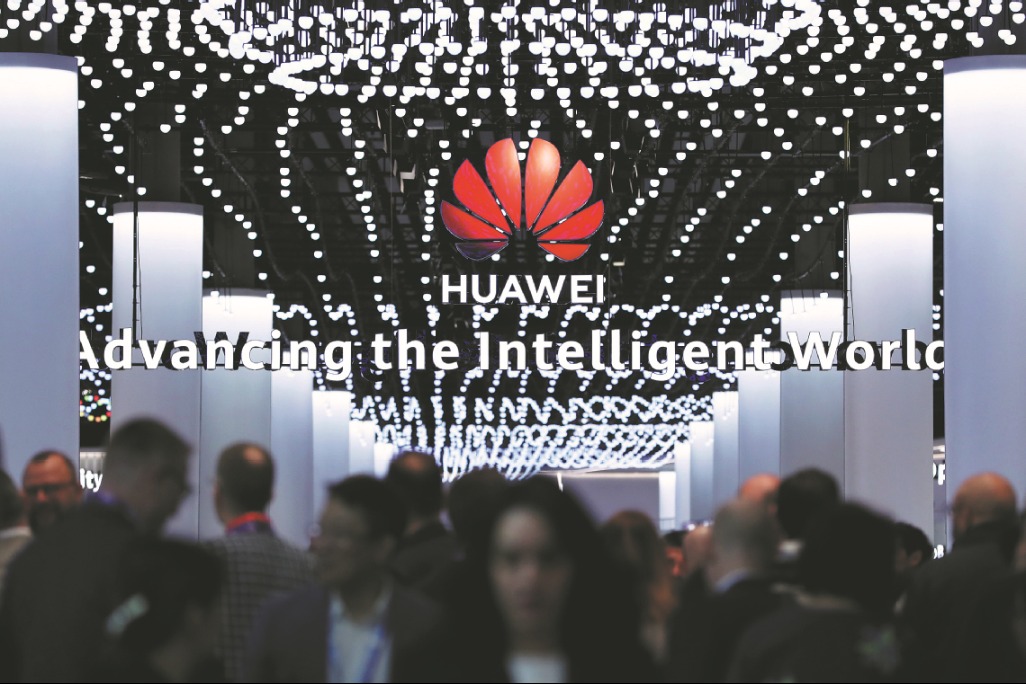What exactly does the US want from Asia?
By Xin Ping | chinadaily.com.cn | Updated: 2022-11-16 16:03

Southeast Asia has recently come into the limelight. Three important summits, namely the Leaders' Meetings on East Asia Cooperation, the G20 Summit and the APEC Economic Leaders' Meeting, will convene in Southeast Asia successively. Leaders in and beyond the region will gather to discuss the world's most pressing issues, marking one of the most highlighted moments on the international stage in 2022.
APEC is one of the most important multilateral organizations in the Asia-Pacific, and also one of the most influential forums for economic cooperation in the world. At a time of uncertainty and crisis, this year's APEC summit bears special significance in overcoming economic hardship and consolidating cooperation in the region.
However, US President Joe Biden decided to skip the APEC summit in Thailand to attend his granddaughter's wedding, even though 18 other world leaders have confirmed their attendance. President Biden emphasizes the importance of Asia but decides to skip such an important meeting at such a crucial moment. The absence of the US President is undoubtedly a blow to the summit and to Thailand, the host country.
Even for the other two summits that Biden is going to attend, the US is not adding momentum to joint efforts for economic cooperation. Rather, it is trying to divert the attention of the summits to geopolitical confrontation and decoupling, seriously hampering international consensus on tackling global challenges such as inflation, food, energy, etc. In fact, Washington's commitment to Asia, as it has stated repeatedly, was called into question long time ago.
The center piece of the US pivot to Asia is the Indo-Pacific Strategy, which is security-oriented and designed to contain China, as it believes that a strong and stable Asia will no longer allow the US to seize power and wealth from the region. The US has been obsessed with teaming up allies and partners to piece together exclusive blocs to confront China in Asia, both in security and economic terms, be it QUAD, AUKUS, IPEF or CHIP4.
Economically, Asian countries value economic cooperation with China, which has been boosted by the Regional Comprehensive Economic Partnership (RCEP), known as the world's largest free trade area, and the Comprehensive and Progressive Agreement for Trans-Pacific Partnership (CPTPP). But the US tries to squeeze China out of the regional market with its own initiatives, first Obama's TPP and now Biden's IPEF.
IPEF turns out to be another disappointment as it lacks concrete measures such as market access expansion or tariff exemption. US Trade Representative Katherine Tai openly described the IPEF as an "arrangement independent of China". Obviously, rather than promote unity and economic integration, the IPEF is designed to divide Asia.
The US has been playing up the drama of leaving and returning, abandoning and starting anew in Asia. Instead of being a constructive, trusted partner in promoting sustainable development and enduring security, it merely wants to build a regional system that serves the US' interests alone.
The US vows to build a "free, open and prosperous" Asia. But will Asia be free and prosperous with the hegemonic intervention in regional affairs by the US? Will the promotion of ideological confrontation rather than trade and investment make Asia prosper? By putting together small blocks among Asian countries, Asia will be made more "open" only to division and regional conflicts.
Obviously, the real goal of the US Indo-Pacific Strategy is to forge an Indo-Pacific version of NATO, so as to maintain the US-led system of hegemony, undermine the ASEAN-centered architecture of regional cooperation, and compromise the overall and long-term interests of countries in the region.
Asia refuses to be reduced to another chessboard for geopolitical contest. If competition and confrontation were the US-defined theme of Asia in the 21st century, it would certainly be rejected by Asian countries.
The author is a commentator on international affairs, writing regularly for CGTN, Global Times, Xinhua News Agency, etc. He can be reached at xinping604@gmail.com.
If you have a specific expertise, or would like to share your thought about our stories, then send us your writings at opinion@chinadaily.com.cn, and comment@chinadaily.com.cn.






















